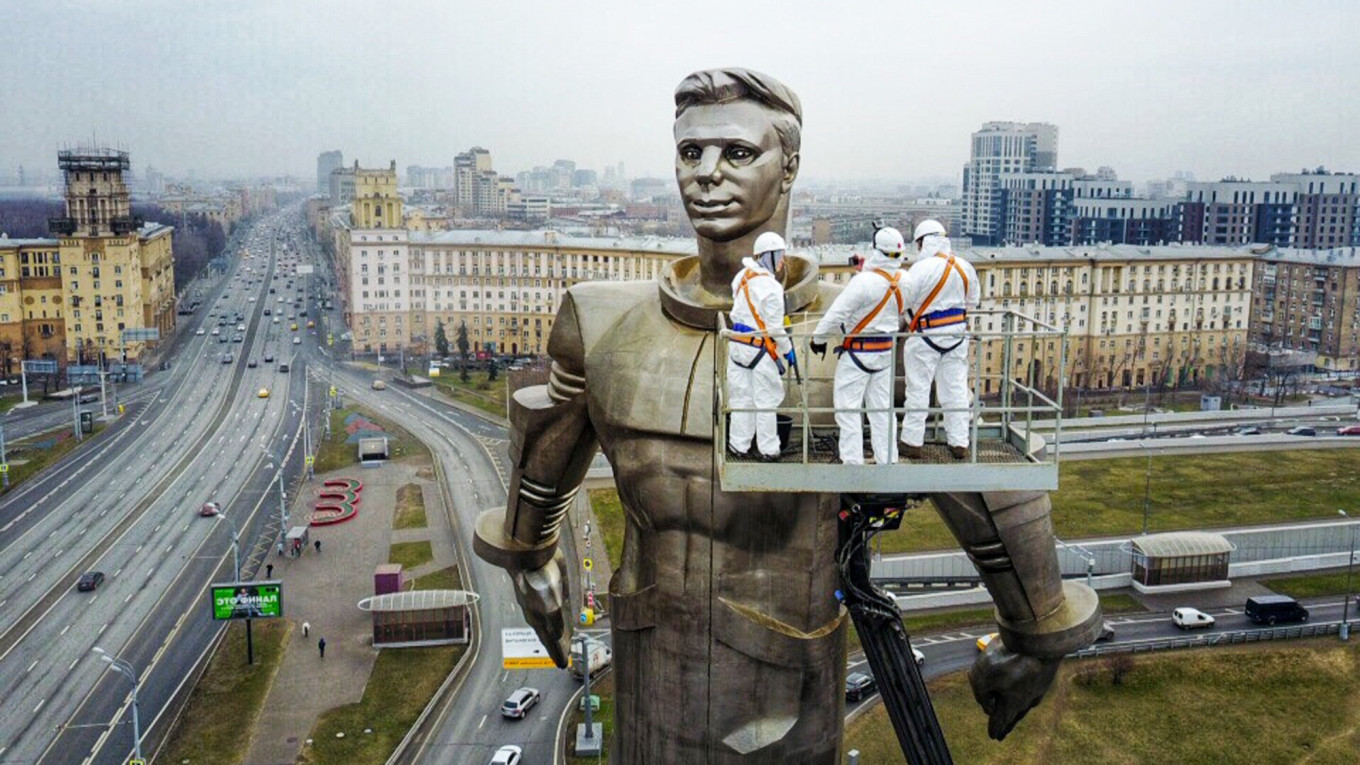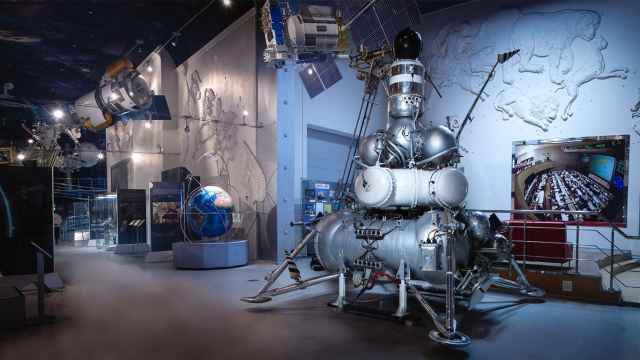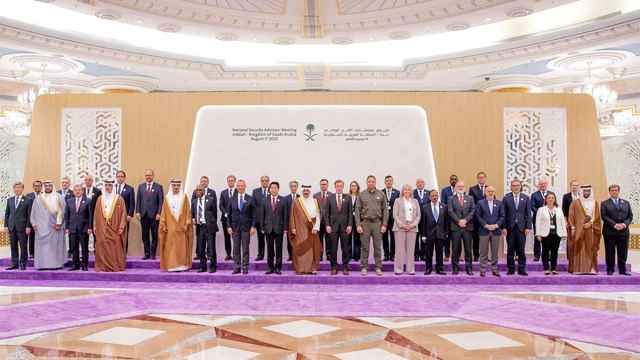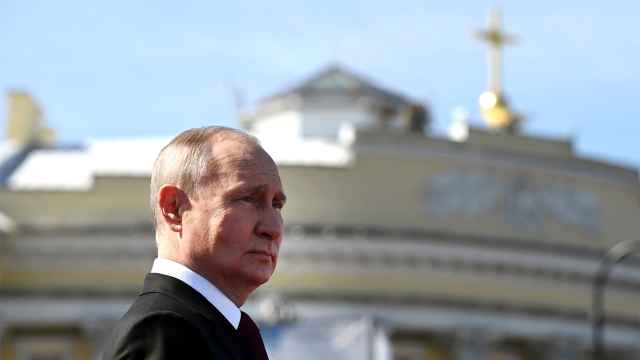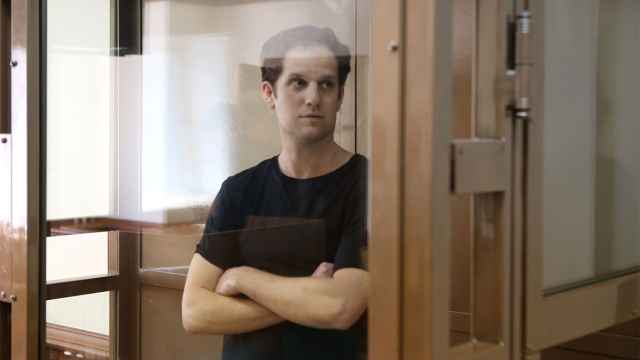There is a belief that the Russian elite under President Vladimir Putin has only ever been interested in money. Yet Putin’s militant, anti-liberal, anti-Western, isolationist, paternalistic, and harshly authoritarian regime has always had an ideology.
This ideology is not systematized, but it does exist, and snippets of it can be found throughout Putin’s speeches, articles, and interviews. Now the war in Ukraine has necessitated a more articulated ideology, however.
The initiative to systematize and codify Putinism has led to a presidential decree listing Russia's "traditional spiritual and moral values," as well as the development of a new ideological curriculum for colleges.
It is no longer enough to indoctrinate children in kindergartens and schools. It is now time to unify the worldviews of college students, and, by extension, those of their professors, whose ranks will inevitably be purged. A similar course taught during the Soviet era was known as "Scientific Communism."
The name for this new curriculum is "Fundamentals of Russian Statehood," though it might as well be called "Scientific Putinism." It is composed of four units: "History" – historical policy as the imposition of a mythologized official version of history, which is one of the instruments for manipulating the mass consciousness of Russians; "Cultural Codes" or the "traditional spiritual and moral values," around which Putin has ordered federal and regional governments to unify; "Russia and the World" — a justification of isolationism, anti-Westernism, and jingoism; and "Vision for the Future," which sets out what the state hopes to achieve beyond victory in Ukraine and the destruction of the "fifth column."
The curriculum justifies the cult of the eternal leader and doubles down on the idea that Russia is fighting the forces of evil in Ukraine in an effort to "de-satanize" the country. However, at the same time, Scientific Putinism lacks key components such as development goals or a vision for Russia's future, focusing as it does almost exclusively on the past.
During Dmitry Medvedev’s presidency, there were teams working on a future-oriented ideology and making road maps based on the idea that Russia would fast-track the modernization of the state and society. Putin’s ideology, however, is one that fundamentally opposes modernization.
Putin has successfully convinced a significant portion of the population that Russia must regain its status as a great power, and that Russia is under attack by both the liberal West and traitors at home. As the regime has grown more authoritarian, its ideology has also become more archaic, its propaganda more obtrusive, and any hopes of modernization have dwindled.
An ideology that consists of historical, cultural, and religious myths, bogus traditions, and resentment seeks to legitimize an authoritarian regime and delegitimize those who oppose it.
Such an ideology makes it possible to label nonconformists as enemies, and to divide people into "us" and "them." The division into "us" and "them" doesn’t just provide a marker for self-identification, it also serves to convince the public that there is a certain majority from which they should not stray.
In the past, the only requirement for being part of the "us" was passive, silent, conformist support. Today, however, this is not enough: Russians must surrender their very bodies to be cannon fodder in the supreme leader’s holy war against the "satanic" forces of the West. This is no longer authoritarianism; it is totalitarianism.
Imperialism and colonialism are key components of Putinism and key factors in the war. There is nothing new about this ideology; it comes almost verbatim from Stalinism and from earlier Eurasian and Slavophile narratives.
The war is being passed off as striving to restore historical fairness, as defensive and preventive, and as liberation. According to Putin, the land of the empire must be "returned and reinforced."
In just a few years, the regime has evolved from a cult of the victory of 1945 to a cult of war itself, and Putin has managed to persuade a large segment of Russian society that the "special military operation" of 2022 is a natural continuation of World War II. In essence, it is an existential war between Russian and Western civilizations.
Putin has started to refer to Russia as an entire civilization. The state is not just sacred and worthy of the ultimate sacrifice; it is also a separate and superior civilization with a "thousand-year history" and its own special path.
Within this history, cultural codes are being passed down from generation to generation as part of the country’s political DNA. This state-civilization has its own pantheon of heroes unchanged from the Soviet era: Alexander Nevsky, Ivan the Terrible, Peter the Great, Joseph Stalin, and Yuri Gagarin.
This state-civilization has always been under attack by enviers and foes, making its state of permanent conflict critical, and not simply limited to the battlefield. The state must win in all aspects — in culture and in sports, in the construction of Olympic facilities, and in the war against Ukraine and the West.
To defend the sovereignty of this state-civilization, the Kremlin is counting on the security services, or siloviki, who have been given additional funding and are reinforced by spin doctors and so-called "journalists" in the Kremlin's service.
The Culture Ministry, the communications watchdog Roskomnadzor, and the Russian Orthodox Church are becoming de facto siloviki themselves, enjoying as they do the right to block or ban media, restrict the sales of books by authors who oppose the war, and decide who can perform on theater stages.
The ideology has become corporeal, bolstered by political and military acts, such as the annexation of Crimea and the "special military operation." In short, the special ideological operation is ongoing, and it seems to be faring rather better than the military one.
This article was originally published by the Carnegie Endowment For International Peace.
A Message from The Moscow Times:
Dear readers,
We are facing unprecedented challenges. Russia's Prosecutor General's Office has designated The Moscow Times as an "undesirable" organization, criminalizing our work and putting our staff at risk of prosecution. This follows our earlier unjust labeling as a "foreign agent."
These actions are direct attempts to silence independent journalism in Russia. The authorities claim our work "discredits the decisions of the Russian leadership." We see things differently: we strive to provide accurate, unbiased reporting on Russia.
We, the journalists of The Moscow Times, refuse to be silenced. But to continue our work, we need your help.
Your support, no matter how small, makes a world of difference. If you can, please support us monthly starting from just $2. It's quick to set up, and every contribution makes a significant impact.
By supporting The Moscow Times, you're defending open, independent journalism in the face of repression. Thank you for standing with us.
Remind me later.



